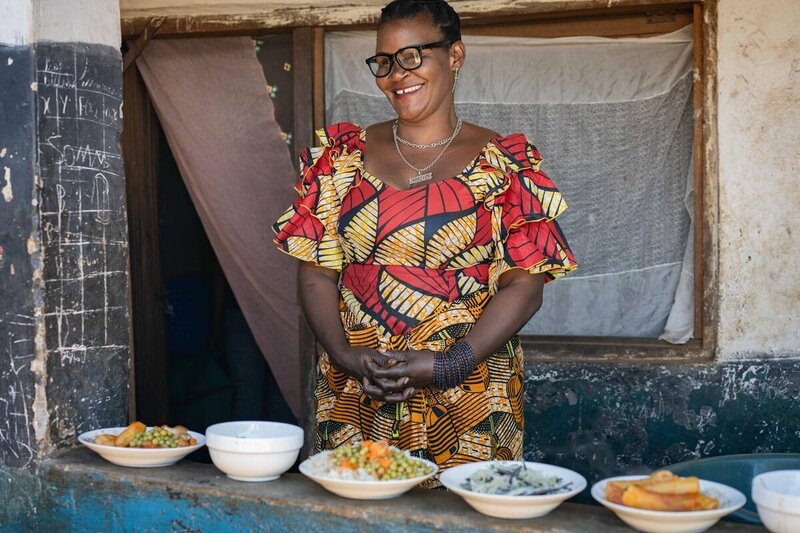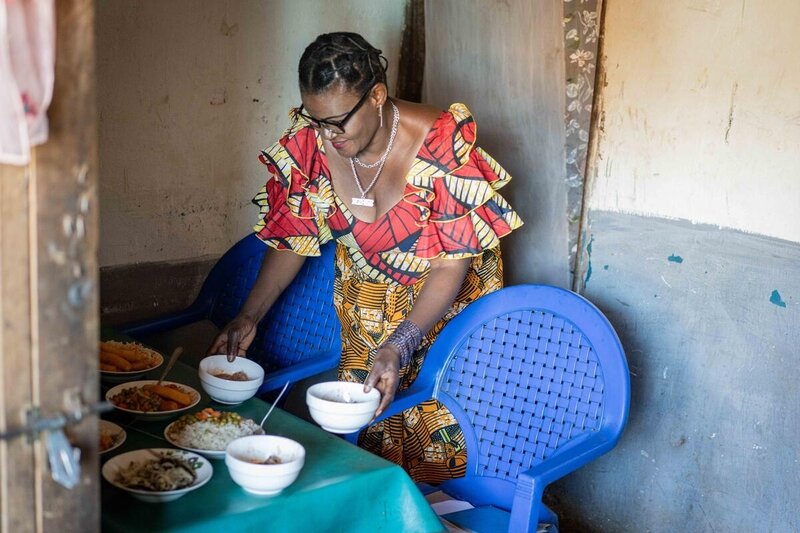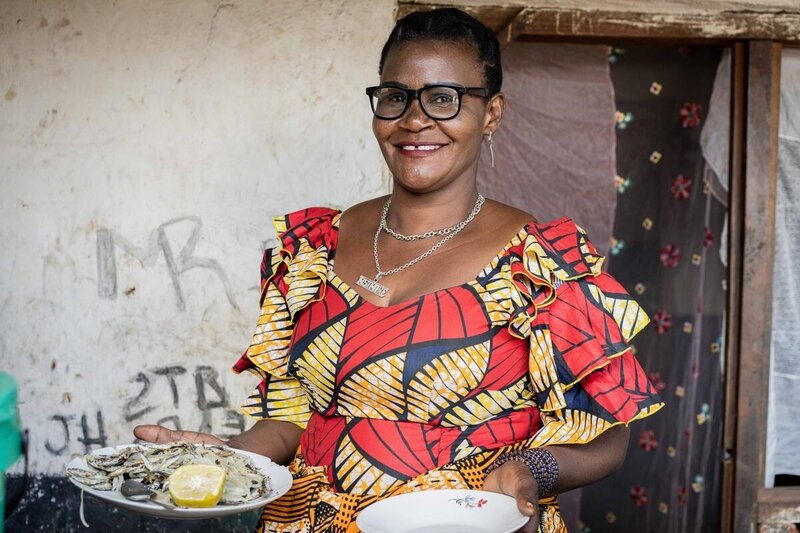 |
| Nsimire started a business in the Dzaleka refugee camp in Malawi having fled the Democratic Republic of Congo in 2017. Photo: WFP/Badre Bahaji |
“My restaurant in the camp can barely fit ten people at a time, unlike my place in DRC,” says Nsimire. “Still, I am still serving food with the same passion.”
Nsimire arrived in Malawi from the Democratic Republic of Congo in 2017. She soon felt that she would have to ‘do something to make herself a life in her new home, the Dzaleka refugee camp.
She tried her hand at farming. After the first year, she realized it was going to be an uphill battle considering that there was no land for refugees to farm.
Because the restaurant she used to run in Goma was destroyed during a period of conflict, prompting her to leave DRC, there was only one thing for it – she opened another one bang in the middle of the camp market in Dzaleka, home to 48,000 refugees from across Africa.
“My restaurant in the camp can barely fit ten people at a time, unlike my place in DRC,” she says. “Still, I am still serving food with the same passion.”
In this new venture, Nsimire has brought foreign dishes to Malawi which cater to her compatriots in the camp.
The World Food Programme provides cash to the refugees living here who rely on this assistance for their survival. This promotes income-generating activities for host community members and refugees to develop pathways to greater self-reliance - and comes as WFP warns that 2022 will be a year of unprecedented hunger for the world.
The organization needs US$22.2bn to both save lives and build resilience for 151.6 million people around the world this year.
Nsimire's customer base has grown to include Malawians and her menu now includes everything from beans, rice, plantains, cassava leaves, and sweet potatoes to nsima, a popular form of porridge.
 |
| Nsimire’s new restaurant can hardly sit ten customers at a time, but her business is flourishing. Photo: WFP/ Badre Bahaji |
“In Congo, we called it ugali,” she says. Nsima is softer than ugali. “I have mastered how to make it and now I even make it for myself sometimes.” She clears a table as another satisfied customer leaves.
Like other traders, Nsimire relies on farmers in the surrounding areas to supply them with fresh produce which they resell. “I think it’s great running a restaurant here in the camp, we have some types of food that usually you will not find around here and sometimes it’s the same food just cooked in a different way. Like the way I make this [sardine dish] usipa which is really nutritious.”
Her new restaurant has been a blessing for Nsimire. In expanding her menu to include some local foods, her restaurant has gained popularity in the camp. It's warming between the refugees and Malawians as both benefits from the initiative.
“I get all kinds of customers here,” she says. “Just now, I have served four Malawians and five refugees and they like the different food I have.”
 |
Nsimire shows off her version of fried small fish. Photo: WFP/Badre Bahaji |
Since WFP introduced cash transfers for food assistance in the camp in 2021, more refugees have access to money and can buy the food they prefer. And whatever their nationality, Nsimire’s kitchen will likely have something delicious and nutritious for her customers at any given time.
Instability and social unrest in the Great Lakes and Horn of Africa regions have resulted in a continued flow of refugees into Malawi for more than two decades. The number of refugees living in Malawi has tripled in the past ten years. The continued impacts of the COVID-19 pandemic on the economy, linked with recent price hikes worsened by the conflict in Ukraine continue to challenge people’s access to basic goods.
Despite generous contributions from USAID and the Government of Flanders in 2022, finding sufficient resources for food assistance to refugees remains challenging. WFP requires US$3.4 million to continue providing assistance to refugees in 2022.
Read more about WFP's work in Malawi
This article was first published by World Food Programme

Post a Comment